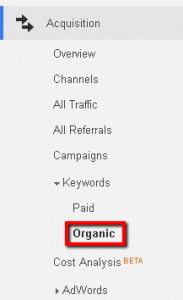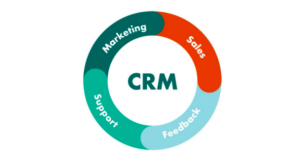To say that the labor market has been confusing for the past few years is an understatement. The first months of the pandemic saw some of the most dramatic job losses in a generation. But then a year later, employers were grappling with the Great Resignation and crippling labor shortages. Now, even amid rhetoric around quiet quitting, there are near daily headlines about a looming recession, volatile markets, and mass layoffs at tech companies.
According to a recent labor report, there are about two million people either short- or long-term unemployed right now.
There may be some lessons to learn from the Great Recession in 2008 and 2009, but the world of work is a very different place than it was 15 years ago. So how do you prepare for a looming recession and the possibility of layoffs? Is there such a thing as a recession-proof job?
On this week’s episode of The New Way We Work, Amanda Augustine shared her advice on how to make sure your work is visible to your manager, think about transferable skills, and stay top of mind if you are working remotely. Augustine is an expert in career advancement and has served as a career expert for Top Resume since 2015.
Is there such a thing as a ‘recession-proof’ job?
Augustine says that there isn’t such a thing as a completely recession-proof industry, but there are some that are typically considered recession resistant. They mirror, in some ways, the roles that were deemed “essential” at the start of the pandemic: healthcare, education, financial services, legal services, and utilities; in other words, things you can’t live without. As for the industries that are more at risk, they generally align Augustine says with the things that people cut back on when trying to save money: hospitality, entertainment, tourism and travel, restaurants, and retail. She advises keeping an eye on layoff trackers for trends and clues as to what may be safer and what may be more at-risk in the coming months.
Keeping the job you have
Regardless of your industry, Augustine offered some advice on how to make sure you’re seen as indispensable if your company does decide to downsize. The first thing to do she says is to become your own “hype person” and remind your manager of what you are contributing. “If you don’t have a regular meeting with your boss on a weekly or biweekly basis, perhaps it’s time to either implement that,” she advises.

Next, Augustine says it’s important figure out the biggest way you add unique value? “Whether it’s you’re doing things to help cut costs or drive revenue, retain customers,” she says. “And even if you’re not in a position where it’s clear to see how your role impacts the bottom line [you can find other metrics such as] where you finding efficiencies? How many subscriptions to how many different tools and platforms are you using? How can you show that you are providing value and reducing cost? Those are always going to be really great selling points for keeping you around.”
Preparing for a job hunt
Sometimes layoffs are inevitable even if you are in a relatively “safe” industry or have done everything right in your role. “Regardless of what’s going on in the economy, you should always be prepared for a job search because things can change at a moment’s notice,” Augustine says.
She recommends exploring your network on LinkedIn and noting who is hiring to get a sense of whether you may need to shift to another industry for a period of time. “If your industry seems to still be going strong, but with competitors, gather that information now, so you can have a clearer understanding of what your goals should look like for your job search, should you need to go that route,” she says. If you think that you’ll need to switch industries, she recommends thinking about your transferable skills and dipping your toes into a side job.
Listen to the full episode for more advice on how to prepare for a job hunt, how to avoid the “out of sight, out of mind” trap if you’re working remotely, and how do productively channel “survivor’s guilt” if you keep your job amid layoffs.
You can listen and subscribe to The New Way We Work on Apple Podcasts, Google Podcasts, Stitcher, Spotify, RadioPublic, or wherever you get your podcasts.
(13)
Report Post





